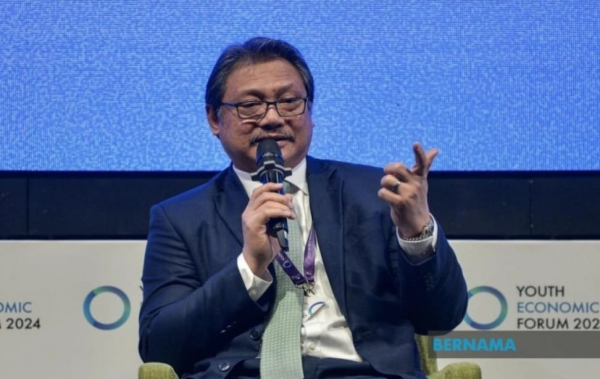KPL
(KPL/VNA) Malaysia’s ASEAN 2025 Chairmanship provides the best opportunity to promote carbon trading and carbon credits among its member countries, said Sarawak’s Deputy Minister of Energy and Environmental Sustainability Datuk Dr Hazland Abang Hipni.

(KPL/VNA) Malaysia’s ASEAN 2025 Chairmanship provides the best opportunity to promote carbon trading and carbon credits among its member countries, said Sarawak’s Deputy Minister of Energy and Environmental Sustainability Datuk Dr Hazland Abang Hipni.
Speaking at the Youth Economic Forum 2024 on October 26, the Deputy Minister said Malaysia can also take advantage of the 2025 ASEAN Summit to complete the carbon emissions trading system (ETS).
He noted the Sarawak Premier also emphasised the importance of proposing the ASEAN ETS at next year’s summit. If implemented, the ETS will benefit countries such as Malaysia, Thailand, Indonesia, Vietnam, and Laos, which are actively pursuing nature-based solutions.
Hazland said Sarawak has developed a waste-to-energy (WTE) system, offering ways to produce energy and generate new revenue streams from waste.
Sarawak also established a WTE policy, categorising waste such as plastic and household waste into municipal, agricultural, industrial, inert material, and electronic waste. This not only creates revenue but also opens up new job opportunities. The technology is simple, with energy generated from combustion. Through the help of artificial intelligence, materials such as steel, cement, and stone can be separated automatically, leaving waste to be processed into steam to drive turbines and produce electricity.
On rural economic opportunities, Hazland said Sarawak is developing microalgae farming, particularly in rural areas, for sustainable aviation fuel (SAF) projects. Microalgae multiply every three days, creating a constant flow of revenue and supporting Malaysia’s overall oil production.
The value chain from the production of SAF will provide benefits to rural communities and the wider industry considering the international requirements for SAF, which are currently set at 1% and are expected to increase to 5%.
KPL